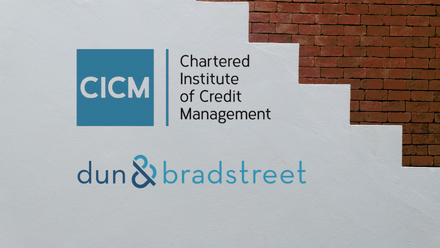What is the credit outlook for 2024?
Esker’s Experts and Insights
On the 6th of December, our corporate partner, Esker, hosted an engaging webinar filled with experts that provided interesting insights into what we should expect for 2024.
In this blog, we’ll take an opportunity to highlight some of the things mentioned on the panel. Thank you to Esker and those who led this webinar: Martyn Brooke, Credit Management Specialist from Esker, Markus Kuger, Chief Economist from Baker Ing, Lucy Fulmer, Head of Creditor Markets Team from PwC and Bhav Chandegra, Sales Director – Creditor Solutions from Aon.
The economic outlook for 2024
Marcus Kuger, Chief Economist from Baker Ing stated that inflation was down to 4.7% in October, with housing being the key driver towards bringing inflation lower. However, core inflation is still high at 5.6% and the UK’s inflation is still above EU rates.
Marcus continued to say that the Bank of England sees a 50% recession risk for mid-2024.
The state of Insolvency going into the new year
Lucy Fulmer, Head of Credit Markets Team from PwC joined us next, and shared interesting statistics surrounding insolvency and consumer behaviour.
Unfortunately, Lucy set some rather gloomy expectations for 2024. Insolvency was up by 8.8% from Q3 and you can expect this to continue. She reinforced that this was the result of many start-ups from 2020 during the pandemic and Zombie businesses.
Other statistics included:
- A 27% increase in administration from Q2 in 2023
&
- A 30% increase in winding up petitions in Q3 of 2023
It was no surprise to find that Engineering and Construction were one of the most impacted sectors.
Consumers are reluctant to spend and spending intention is negative across all categories – including groceries. Therefore, it was not a shock to find that hospitality and leisure had an increase in business failures up to 18.4%. Lucy went on to iterate that Black Friday 2023 was muted despite paper-talk and cited that statistically 55% of consumers wait until December to do any of their Christmas shopping (with 7% leaving in until the last week 1!).
This might be a good opportunity for us to mention that Lucy and her team also help CICM Members through Debt Analysis, Trade Credit Forums, Credit Reference Agencies and more. Find out more about how PwC can help CICM members.
Looking into the Credit Insurance Market
Finally, Bhav Chandegra from Aon joined us and opened with the statement that supports previous statistics in this blog regarding Insolvency. He stated that Allianz Trade expects global insolvency to increase in 2024 and to expect insolvencies to exceed pre-pandemic levels.
Bhav also went on to state that Q3 2023 revenue growth from the largest trade credit carriers was varied but overall below 10% and has slowed. Carriers continued to have high levels of acceptance at around 75% and they have played a key role in supporting trade. One thing that Bhav also highlighted was in Aon’s Global Risk Management Survey – it was discovered that “Failure to attract and retain talent” had risen into the top ten risks for organisations. In fact, online resources point to training being a key role in retention 94% of employees claim they would remain with a company longer if it simply invested in their learning, according to LinkedIn's 2022 Workplace Learning Report.
Is it all Doom and Gloom?
Iain Young MCICM (Grad), Training Delivery Manager at the Chartered Institute of Credit Management states that Ihe believes Bhav’s comments are prescient; identifying talent retention as a strategic risk clearly evidences the importance of taking a proactive approach to ensure the credit function remains engaged, motivated and trained to a high standard. This is particularly relevant given the economic challenges that Esker’s panel believe lie ahead. CICM training, qualifications and membership provide an excellent way to achieve this and to enhance resilience.
Furthermore, Mary Delahunty MCICM (Grad), Qualification & Apprenticeship Delivery Manager for the Chartered Institue of Credit Management found it is clear businesses will need skilled credit teams to manage the ongoing economic challenges and the impact this will have on businesses.
Jules Eames FCICM (Grad) elaborates that history shows even the most challenging situations bring with them, opportunities. Adversity breeds collaboration. Dynamic teams should use this time to build strong and effective relationships with their clients, customers and stakeholders. Greater visibility, coupled with a diverse range of skills and knowledge, allows credit professionals to respond to 2024 expectations. Skilled and empathetic credit management and debt collections people, knowledgeable in recoveries and insolvency law, need to be in place to not only weather the storm but find a break in the clouds.






